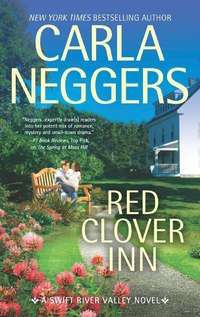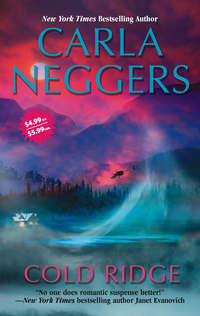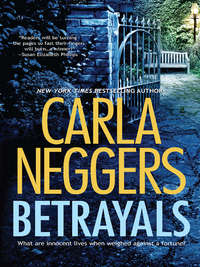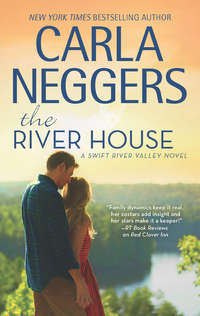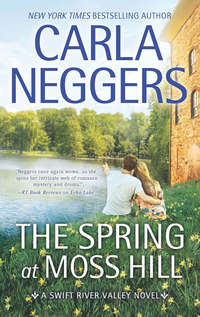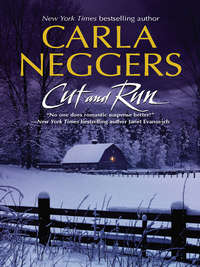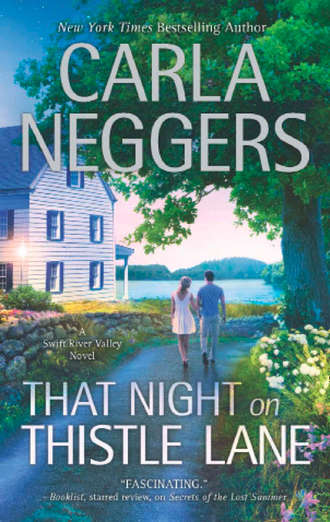
Полная версия
That Night on Thistle Lane
Phoebe rolled up her car windows, shut off the engine and collected her wine bottles as she stepped out into the shade. With its new roof, furnace, windows, wiring and plumbing, the house was no longer a notch above a tear-down. It still needed a new kitchen and bathroom, but she had to save up before she tackled any more big projects. Right now, she was concentrating on some of the fun cosmetic work—paint, wallpaper, gardens and restoring flea-market and yard-sale finds.
With her painting skills and eye for color, Olivia had been a huge help, but The Farm at Carriage Hill and her new life with Dylan were creating uncertainties for her. Phoebe had welcomed having Maggie and then Olivia move back to Knights Bridge, but that didn’t mean more changes weren’t coming. Change was inevitable, Phoebe thought. Her own life was more settled than the lives of her sisters and most of her friends. Her job at the library was secure. She had no plans to move, go into business for herself or get involved with a man.
Five years from now, her life would likely look more or less as it did now.
“Just without an avocado-green refrigerator in my kitchen,” she muttered happily as she headed down the curving stone walk with her wine.
The narrow clapboards of her small house were painted classic white. At Olivia’s suggestion, Phoebe had chosen a warm, welcoming green for the front door. It was framed by pink roses that she’d pruned and trained to climb up the white-painted trellis by the porch steps. When she’d moved in, the yard was an overgrown mess. She didn’t have Olivia’s green thumb, but she’d nonetheless managed to save many of the shrubs and perennials that had come with the property.
As she started up the steps to the small, covered porch, she saw that her twin sisters had arrived ahead of her. They were seated on wicker chairs that Phoebe had reclaimed and painted white, adding cushions in a mix of pink, blue and white flowers. Ava and Ruby, at twenty-three the youngest of the O’Dunn sisters, were fraternal twins, but they were so much alike that people often assumed they were identical. In both appearance and temperament, they took after their late father, Patrick O’Dunn, an auburn-haired, green-eyed, gorgeous-looking dreamer, as hopelessly impractical as the widow he’d left behind almost ten years ago.
“Thanks for coming,” Phoebe said as she unlocked the front door. “Olivia and Maggie will be here any minute.”
“This is going to be so much fun,” Ruby said, tucking a pink rose blossom behind her ear. She had on a long black skirt and a white tank top, her short, wavy hair dyed a purple-black that made her skin seem even paler, more translucent. “We brought all our goodies. Makeup, wigs, hairpieces, curling iron, needles and thread. We’ve already done up a half-dozen masks. Three are simple. You’d be able to recognize whoever’s wearing them. Three are more elaborate. It’d be tougher to recognize who’s wearing them.”
Ava smiled. “We will not fail you.” She twirled a rose stem in her fingertips. Her hair was its natural reddish brown, trailing down her back in a loose ponytail. Her skirt, which came to just above her knees, was a deep, warm red that worked surprisingly well with her turquoise lace top. “A masquerade ball in Boston. It doesn’t get much fancier than that.”
Phoebe pushed open the door. “Dylan has extra tickets if you want to go.”
“I wish,” Ava said wistfully, tossing her rose over the porch rail into the grass. “We have to work, and classes start again next week.”
“Otherwise we’d go in a heartbeat,” Ruby added.
No doubt they would, Phoebe thought. “It does sound grand,” she said as she led them inside. “Maggie and Olivia are counting on your theatrical flair. What do you think of Maggie in the blue gown Grace Kelly wore in To Catch a Thief and Olivia in Audrey Hepburn’s black dress from Breakfast at Tiffany’s?”
Ava turned, intrigued. “Do you have the dresses?”
Phoebe nodded. “I have the dresses.”
“Oh, wow. Excellent. Ruby?”
“Grace’s icy-blue chiffon gown? Audrey’s little black dress?” Ruby laughed. “That’s fantastic.”
“I even have pearls and a cigarette holder,” Phoebe said.
“Where did you get them?” Ava asked.
“I’m thinking of including them in our vintage fashion show,” Phoebe said evasively. Her sisters followed her into the kitchen, where she put the wine in the refrigerator, a relic that, somehow, still worked.
Ava leaned against the counter, a cheap wood that Phoebe had painted creamy white, her first renovation when she’d moved in. “So, Phoebe,” Ava said, crossing her arms on her chest. “Have you decided what you’re wearing?”
Phoebe got out wineglasses and set them on the cracked Formica counter, sidestepping her sister’s question. The twins were in graduate school—Ava in New York, Ruby in Boston—but they were spending the summer in Knights Bridge, living at home to save money. They had student loans that would take years if not decades to pay off, and big dreams that might never pay off, but Phoebe hoped everything would work out for them, believed in them. She knew they felt the same way about her but suspected they had their doubts about her choices. Not her library work. Her solitary life—or what to her sisters seemed like a solitary life. Meaning she didn’t have a man.
She’d had one, once. She’d been on the road to marriage and a happy ending of her own, but it hadn’t worked out that way.
Everyone in town knew her story—Phoebe O’Dunn, jilted at twenty, within forty-eight hours of finding her father dead from a tree-trimming accident. She’d shielded her mother and sisters from the depth of her pain, but the shock had taken its toll. Broken hearts healed but that didn’t mean life was ever the same. Phoebe had deliberately shut the door on romance, at least for herself.
But it was fine, all fine, because she was fine. She loved her work, her family, her friends, her town. She couldn’t be more content than she was right now.
Ava looked out the window over the sink at the backyard flower garden, dominated now, in mid-August, by hollyhocks that ranged from soft white through three shades of pink to deep maroon. “You’re not going to the ball, are you, Phoebe?”
Phoebe changed her mind and decided to pour the wine now. She grabbed the pinot grigio out of the refrigerator and set it on the counter. “No, I’m not going,” she said matter-of-factly as she rummaged in the utensil drawer for a corkscrew. “Do you both want wine?”
Ruby plopped her tote bag onto a chair at the table. “Phoebe, you know you’d have a great time. You never go anywhere—”
“I have so much to do here. I’m taking vacation days before the end of the summer. I’ll go someplace then.”
“Where?”
“I don’t know. Someplace.” Phoebe held up a glass. “Wine?”
“Sure,” Ruby said with a sigh. “Just don’t think I’ve given up.”
“Me, either,” Ava said. “You should go to this ball tomorrow, Phoebe. Maybe you’ll change your mind when you see the masks Ruby and I made. Anyway, wine for me, too. I’ll get our goodies out of the car.”
“Hang on, I’ll help.” Ruby withdrew a square of golden-colored soap from her tote bag and tossed it to Phoebe. “Check it out while we’re setting up. It’s a new soap Mom, Olivia and Maggie are trying out. Mom wants your opinion.”
Olivia and Maggie were experimenting with making their own artisan goat’s milk soaps to sell at The Farm at Carriage Hill. If it worked, Elly O’Dunn’s goats could go from being an expensive and impractical hobby to earning their own keep. Phoebe was happy to do what she could to help and knew Ava and Ruby were, too, although Ava in particular wasn’t crazy about their mother’s goats—especially when she had to clean up after them. They all appreciated the mildness and purity of the soaps.
Phoebe took in the gentle lavender scent of the bar Ruby had tossed her. “It really is lovely, isn’t it?”
“Olivia’s already designed the labels,” Ruby said. “Dreams do come true, Phoebe. Olivia’s are.”
“I know. I want yours to come true, too.”
Ava stopped in the hall doorway. “What about your dreams?”
“My dream,” Phoebe said lightly, abandoning the soap for her wine, “is to see Maggie and Olivia all set for their charity ball. Go grab your stuff. I’ll get the dresses.”
* * *
Three hours, two and a half bottles of wine, a pot of vegetable curry and much laughter later, Phoebe was again alone in her kitchen. Olivia and Maggie had precise instructions, beautiful handmade masks and everything else they needed to transform themselves into their own versions of Audrey Hepburn and Grace Kelly.
The dresses had worked out even better than Phoebe had imagined.
The dresses.
Ava had recognized them first. “Phoebe, these aren’t like the dresses Audrey and Grace wore in Breakfast at Tiffany’s and To Catch a Thief. They are the dresses.”
“Close copies,” Phoebe had said, then again deflected questions about where she’d gotten them.
She turned out the light in the kitchen and walked down a short hall to a small back room. For most of the past eighteen months, she’d used it to store paint supplies, tools and junk she’d collected from the rest of the house but wasn’t sure what to do with. Then, on a rainy night earlier that summer, she’d cleaned everything out, wiped down the walls, mopped the floor and considered the possibilities. A guestroom? A study? A spa bathroom?
In another life, it would have made a great baby’s room.
She felt the same pang of regret she’d felt that night, but it was ridiculous. If her father hadn’t died and her steady college boyfriend hadn’t given her an impossible ultimatum, she wouldn’t have ended up on Thistle Lane at all, with or without babies.
Florida.
She’d have ended up in Florida.
She tore off the dry-cleaning plastic to a third dress she’d had cleaned along with the Grace Kelly and Audrey Hepburn dresses. It hung on a hook in the back room.
She stepped back, marveling at the creativity and the workmanship of the gown. It was Edwardian, one of the period pieces in the hidden room. Its creator had chosen a warm, rich brown silk satin, decorated it with sparkling beads, lace and embroidery, all in a matching brown. It had an empire waist, a deep square neckline and loose, belled lacy sleeves.
And there was a matching hat.
It was as romantic and beautiful a dress as any Phoebe had ever seen.
A gown for a princess.
She tried to shake off the thought. She’d had too much wine. Just two glasses, but she felt...well, a little reckless.
And why not?
After all, what could be more perfect for a masquerade ball than a gorgeous, mysterious dress from a secret attic room?
Two
“I could pass for a swashbuckler right now,” Noah Kendrick said as he stretched out on an expanse of granite near the base of Mount Washington, the tallest peak in the White Mountains of northern New England. “If I don’t shave or shower before tonight, I’ll be all set.”
Dylan McCaffrey shrugged off his pack and sat on another boulder. Noah saw no sign that four days of hiking had had any effect on his friend beyond sweat, stubble and a certain grubbiness. Two of Dylan’s hockey player friends had joined them but had split off that morning for several more days of tramping in the mountains. It was Dylan’s and Noah’s first time hiking in the White Mountains. They were in good shape, but Mount Washington was a hell of a climb, their last summit before heading back to civilization.
And a charity ball.
Great, Noah thought without enthusiasm.
He doubted that anyone at NAK, Inc., had needed to reach him in the past three nights and four days. He was the founder of the high-tech entertainment company that bore his initials—NAK, for Noah Andrew Kendrick. The convergence of technology and entertainment had fascinated him for as long as he could remember, and he’d managed to turn it into a profitable business. NAK was just four years old but had gone public last fall, a grueling process that had consumed him and his senior managers.
He’d stepped down as CEO in June. His idea.
One of his smarter moves had been to get Dylan, fresh out of the NHL and looking for something new to do, to help with NAK. He’d eased back from day-to-day involvement now, too.
NAK would have gone bust within months without Dylan’s help. Dylan knew how to read people. He knew how to fight in a way Noah didn’t.
They were both keenly aware that a central challenge for a newly public company was to figure out what to do with the founder. Sometimes the best thing for the company was for the founder to stay on as CEO, or at least remain deeply involved in the stewardship of his or her creation.
Sometimes the best thing was for the founder to find something else to do.
Like spend a few days hiking on the other side of the continent.
Noah decided to focus on that problem another time. “I promise I won’t step foot in that ballroom until I’ve had a shower,” he said. “I wouldn’t want to scare the ladies.”
Dylan grunted. “More like turn everyone off their hors d’oeuvres.”
Noah grinned, leaning back on one arm as he surveyed the view of the mixed hardwood forest they were about to enter, a relief after the rugged, open terrain above the tree line. At over 6000 feet, Mount Washington was the highest peak in the east and one of the deadliest mountains in the world, in part because of its proximity to a large and mobile population, in part because of its changeable and often extreme weather conditions. Noah liked it because unlike the other mountains in what was known as the Presidential Range—a series of high peaks named after U.S. presidents—Mount Washington had a weather observatory and a full café with hot dogs at the top.
He couldn’t remember the last time he’d had hot dogs, but he’d helped himself to two on his brief stay on the summit.
“It’s a beautiful spot, Dylan,” Noah said, meaning it, “but the same mosquito that bit me yesterday at the Lake in the Clouds has found me again. I think it followed me up and down this mountain.”
“It’s not the same mosquito, Noah.”
“I hate mosquitoes.”
“At least it’s only one. It could be a hundred.”
“Maybe my lack of showering discouraged reinforcements.”
Dylan grinned at him. “You and mosquitoes. Imagine if you didn’t have bug repellant.”
“No, thanks.”
“You never hiked up Mount Washington while you were at MIT?”
Noah shook his head. “Never even considered it.”
“Too busy doing math problems,” Dylan said, amused.
Math problems. Noah sighed. He had explained countless times in his long friendship with Dylan—practically since first grade—that “math problems” was too simplistic. It didn’t explain how his mind worked.
“I’m not good at math,” Dylan added.
“You don’t like math. There’s a difference. And your idea of ‘math’ is arithmetic. Adding fractions.”
“I can add fractions. It’s multiplying them that does me in.”
Noah glanced at Dylan but couldn’t tell if he was serious.
“We shouldn’t sit too long,” Dylan said. “We don’t have much farther to go, but we want to make it down the mountain in time to get to Boston and turn into swashbucklers.”
For a split second, Noah imagined himself lying back on the boulder and taking a nap. They’d encountered high winds, fog and temperatures in the low fifties on the last thousand feet or so to the summit. He appreciated the clear, quiet weather and relative warmth lower on the mountain. It was even sunny. By the time they reached the trailhead at Pinkham Notch, it would be in the seventies. He’d peeled off his jacket on the descent and continued in his special moisture-wicking Patagonia T-shirt and hiking pants. Dylan, who was built like a bull, was in Carhartt. Noah was fair and lean, more one for sessions in the gym or dojo than treks in the wilderness. Dylan had decided a few days in the White Mountains would be good for Noah.
Same with the masquerade ball tonight.
Good for him.
Noah had gone along. Why not? It wasn’t as if he had a whole lot else to do. Not like even just a couple of months ago. A year, two years, ten years ago, he’d navigated a hectic schedule that would have flattened most people he knew. So had Dylan.
“You couldn’t sign me up for a simple black-tie ball,” Noah said, sitting up straight on the New England granite. “No. No way. My best friend since first grade has to sign me up for a masquerade. I have to wear a costume.”
“More or less. It’s not like Halloween.” Dylan was clearly unmoved by Noah’s complaints. “All in the name of fun and a good cause.”
“Right.” Noah drank some water from his water bottle, relieved that he didn’t see any mosquitoes. “I’ve agreed to dress up in whatever swashbuckler outfit you’ve managed to find for me, but I’m skipping the long-haired wig and funny beard.”
“Just not the sword,” Dylan said.
Noah grinned. “Never the sword.”
“A reenactment musketeer rapier is waiting for you in Boston. No one needs to know it’s you behind the black mask. I understand you don’t want your photo turning up on some gossip website asking if the most eligible bachelor in San Diego has lost his mind.”
“Dylan, why do I have the feeling you aren’t taking my concerns seriously?”
“Because I’m not. You’d have even more women flocking to you if they could see you in your sword-fighting duds.”
Sword-fighting duds. Noah shook his head. Expecting Dylan to appreciate proper fencing terminology was a waste of time. No doubt he felt the same when it came to Noah and the nuances of hockey.
“The costume has a cape, too,” Dylan added.
“There’s no hope for you, my friend.”
Dylan shrugged as he drank some of his own water.
“You used to be the most eligible bachelor in San Diego,” Noah said.
“Best-looking. You were always more eligible. You just have a habit of choosing the wrong women.”
Noah tucked his water bottle into the side mesh pocket on his pack and got to his feet, lifting the pack onto one shoulder. “What wrong women?”
“Hollywood babes for starters,” Dylan said, standing with his pack.
“Only recently. I haven’t been the same since I got dumped by that computation engineer my senior year at MIT. She was brilliant, cute—”
“Not that cute. I remember her.” Dylan jumped onto the trail. He didn’t seem to consider that he might slip and hit his head, twist an ankle or fall off the damn mountain. Of course, he landed lightly on his feet. “She wasn’t as cute as your latest actress.”
“Her show just got canceled, and she’s not cute. She’s gorgeous.”
“Smart?”
“Yes, I guess so. We didn’t get that far before we went our separate ways.”
“Not many people are smart compared to you. It’s a relative term.”
Also one Noah seldom considered, but he had learned through hard experience that not everyone thought the way he did. And what did he know about relationships? His latest “relationship,” with the cute/gorgeous actress of the canceled Sunday-night show, had lasted three weeks and ended that spring. He’d known from the start it wasn’t an until-death-do-us-part match, but he’d thought it would last at least through the summer.
He was the one who had ended it. Just had to be done. Expensive dinners, gifts and such were one thing. Manipulating him to bankroll a movie she could star in was another.
“It’s good you had this time to enjoy nature,” Dylan said without any evidence of sarcasm.
“Right. Sure. I didn’t even bring a cell phone.”
Waving off a mosquito that seemed to have singled him out, Noah joined Dylan in heading down the mountain. In a few minutes, they were in dappled shade, and he could hear water tumbling down a rock-strewn stream. Several hikers passed them, ascending the rugged, steep trail. There were no guaranteed safe trails up Mount Washington, but thousands climbed it without incident every year. Preparation and the right equipment were key, but so was the right mindset—a clear understanding of one’s abilities and a willingness to turn back if conditions warranted. A foolish risk on Mount Washington could prove dangerous, even deadly.
When he’d decided to start his own business, Noah had assessed his situation with the same clarity and objectivity as he had when he agreed to join Dylan and his hockey friends hiking in the White Mountains. He’d realized within weeks of forming NAK that he needed Dylan McCaffrey on his team. They’d grown up together in suburban Los Angeles, but Noah had gone on to MIT and Dylan into the NHL. After a series of injuries ended Dylan’s hockey career, he had blown most of his money and was sleeping in his car when Noah knocked on his window asking for his friend’s help.
Dylan’s instincts and no-nonsense view of people and business helped Noah get NAK going and keep it going. Its success had exceeded their dreams. Now Dylan was marrying a woman from a small New England town and reinventing his life.
Noah had no idea what he was doing beyond taking a hot shower when he was back in civilization.
More mosquitoes descended on him when he rounded the next bend in the trail, but by then he didn’t care. He could hear cars. After three nights sleeping in a tent, he was ready to check into a five-star Boston hotel, even if a B-movie swashbuckler costume was waiting for him.
* * *
Dylan had booked a room at the sprawling Mount Washington Hotel, a National Historic Landmark that opened in Bretton Woods in 1902. Noah would have happily stayed there for several days and enjoyed the resort amenities and the spectacular views of the surrounding mountains, but he and Dylan had to get to Boston.
They took turns in the shower and changed into fresh clothes.
Noah didn’t shave. Dylan grinned at him. “Four days’ beard growth is essential for a swashbuckler, I take it.”
Noah shrugged. “I’m just hoping it will help keep anyone from recognizing me.”
He slipped into a black sport coat, which he wore over a silky black T-shirt and black trousers—the uniform he’d adopted after graduating from MIT. He didn’t remember why, except it had seemed like a good idea at the time. Dylan insisted it was because he wanted to appear older. Maybe it had been. Whatever the reason, now people expected him to show up head-to-toe in black.
He cupped his iPhone in one hand and started out into the hall.
“How many messages did you have?” Dylan asked as they left the room.
“What makes you think I looked?” At his friend’s roll of the eyes, Noah answered with an exaggeration. “Ten thousand.”
“You mean ten, and one you answered.”
It was close. That was Dylan. He could read people.
They headed down wide, elegant stairs to the main lobby, then outside onto a sweeping porch overlooking expansive lawns and the stunning mountains where they’d spent the past four days and three nights.
As they walked to Dylan’s car, he frowned at Noah. “Everything okay?”
“I got bit by mosquitoes. Do you worry about West Nile virus?”
“No, and you don’t, either. What’s up?”
Noah shook his head as he climbed into the passenger seat of Dylan’s Audi. He’d bought the car for his Knights Bridge residence now that he was spending most of his time on the East Coast. Noah didn’t offer to drive.
He needed to think.
In fact, he’d had one call from San Diego that made him uneasy. He would have to return it once they arrived in Boston. He had no choice.
He could see that Dylan was on alert. He would help in a heartbeat if Noah was in trouble. NAK trouble, personal trouble. It didn’t matter.
This time, Noah didn’t want Dylan to get involved.
The San Diego call was his problem.
Dylan seemed to guess that asking more questions would get him nowhere. His years on the ice, practicing, playing with a team, had honed his natural instincts about when to make a move, when to hold back. Noah had always been more of a solo operator.



